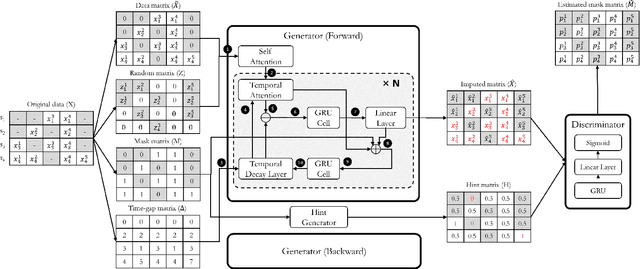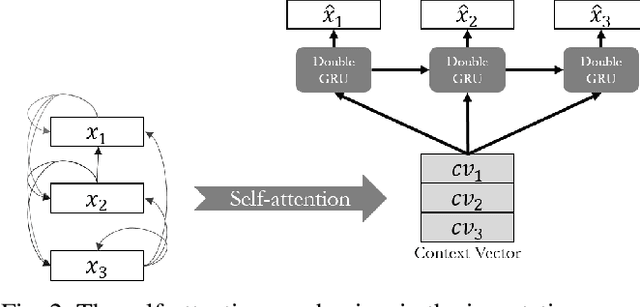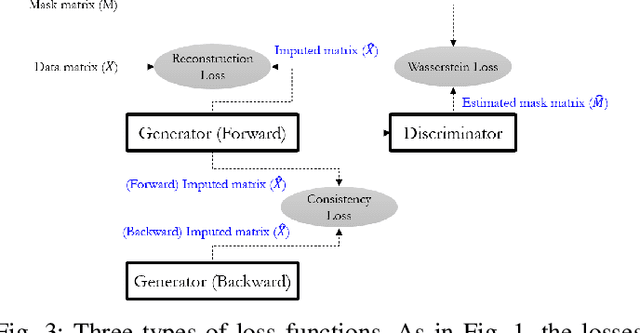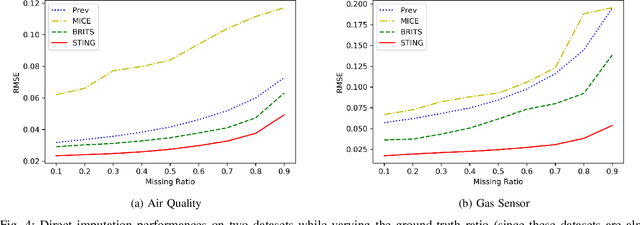STING: Self-attention based Time-series Imputation Networks using GAN
Paper and Code
Sep 22, 2022



Time series data are ubiquitous in real-world applications. However, one of the most common problems is that the time series data could have missing values by the inherent nature of the data collection process. So imputing missing values from multivariate (correlated) time series data is imperative to improve a prediction performance while making an accurate data-driven decision. Conventional works for imputation simply delete missing values or fill them based on mean/zero. Although recent works based on deep neural networks have shown remarkable results, they still have a limitation to capture the complex generation process of the multivariate time series. In this paper, we propose a novel imputation method for multivariate time series data, called STING (Self-attention based Time-series Imputation Networks using GAN). We take advantage of generative adversarial networks and bidirectional recurrent neural networks to learn latent representations of the time series. In addition, we introduce a novel attention mechanism to capture the weighted correlations of the whole sequence and avoid potential bias brought by unrelated ones. Experimental results on three real-world datasets demonstrate that STING outperforms the existing state-of-the-art methods in terms of imputation accuracy as well as downstream tasks with the imputed values therein.
 Add to Chrome
Add to Chrome Add to Firefox
Add to Firefox Add to Edge
Add to Edge